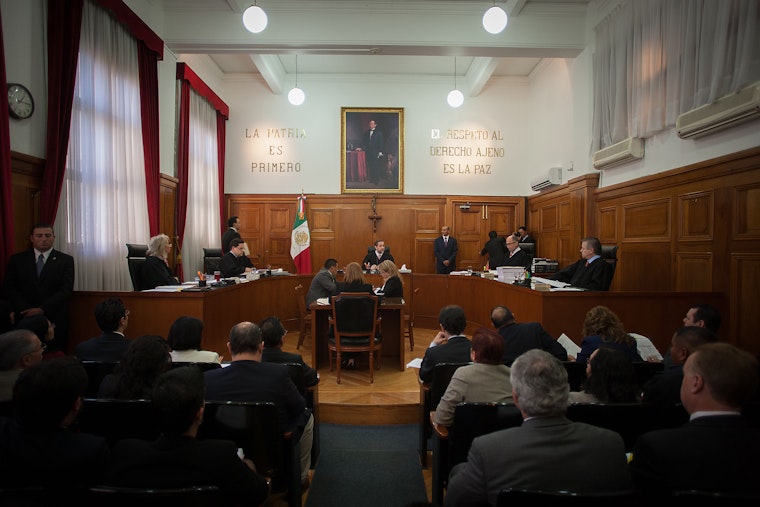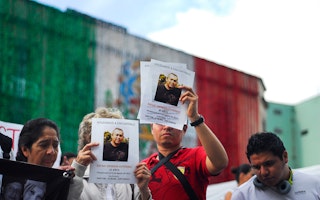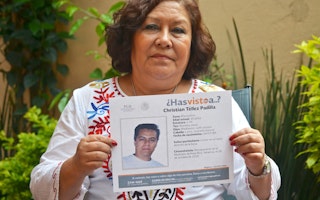Shining a Light on the Selection of Mexico’s Supreme Court Judges
By Adriana García

This month’s high-profile decision by Mexico’s Supreme Court to effectively decriminalize the recreational use of marijuana was not the first time the court’s 11 judges have been prepared to challenge existing legal norms. Just last year, the court ruled that defining marriage as a union only between a man and a woman was discriminatory and unconstitutional, in another headline-grabbing case. In 2013, the court’s standard-setting efforts in human rights were honored with the UN’s prestigious Human Rights Prize, with a citation that also noted its impact across Latin America as a whole.
Yet despite the court's evident influence in Latin America’s second largest democracy, the process of selecting Mexico’s supreme court judges has usually attracted little in the way of public attention. But now, as Mexico’s president, Enrique Peña Nieto, is preparing to nominate two new judges, leading Mexican civil society groups are seeking more transparency in the process.
Under the Mexican constitution, the senate must vote to confirm nominations made by the president. Yet this process takes place with no public debate or discussion,while the senate votes to approve or reject each candidates on the basis of nothing more than an extract of the nominee’s curriculum vitae. There are no public hearings. The senate then approves or rejects the candidates, but it never publicly explains its choices.
This year, in response to pressure from civil society groups, the senate is to at least hold a public hearing to discuss the selection process for the two planned new appointments. The senate has also received a petition signed by more than 25,000 people demanding that appointments be made without favoritism or political bias. Civil society groups have also requested that the UN Special Rapporteur on the Independence of Judges and Lawyers, Monica Pinto, engage in the process.
The public hearing on the process is a step in the right direction, but establishing a more transparent system will require changes. The Open Society Justice Initiative has prepared a background briefing paper to support this process, highlighting a selection of international, regional and national best practices in this area. Key elements include the following:
- Objective and public criteria should be established based on proper professional qualifications, as required by national law and relevant regional standards.
- The process should be carried out through publicly open contests and should include public hearings; senators should publish the opinions justifying their decisions.
- The process should encourage the participation of different groups of society, including civil society groups and allow for public screening and participation of the population in the process.
- The selection criteria should be clear and well publicized, and candidates should be required to demonstrate a record of superior competence and integrity.
The kind of civil society pressure now in play in Mexico can play an important role in creating a more open process for nominating top judges. In Argentina, for instance, following concerted efforts by civil society, the president now nominates the candidates after a nominating proceeding conducted by a special committee. In South Korea, the appointment procedure requires the creation of an ad hoc advisory committee.
Elsewhere, Brazil included in its 1988 constitution a requirement that the senate must hold a public hearing to question the nominee. In the United States, the senate holds live, televised hearings that receive intense media scrutiny. Canada also offers an interesting example: although not specified by law, in 2006 a parliamentary committee convened the first public hearing to question an appointee to the country’s supreme court.
Ultimately, a more open process should reinforce public confidence both in the quality of a country’s judges, and in their independence from executive pressure—essential elements of democratic governance everywhere.
Adriana García, a Mexican lawyer specialized in administrative law, works with the Open Society Justice Initiative on access to information and justice issues in Mexico.

